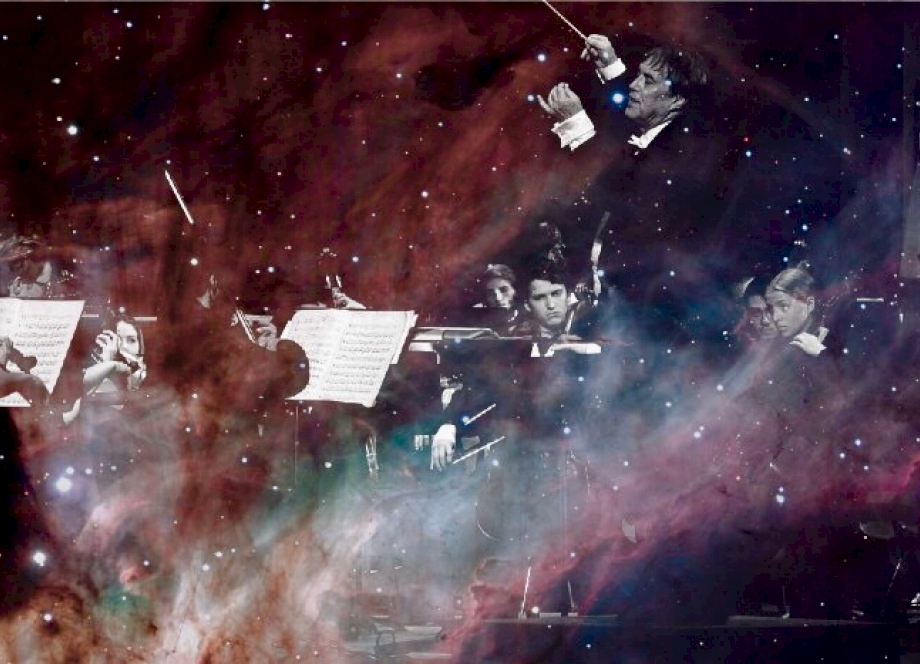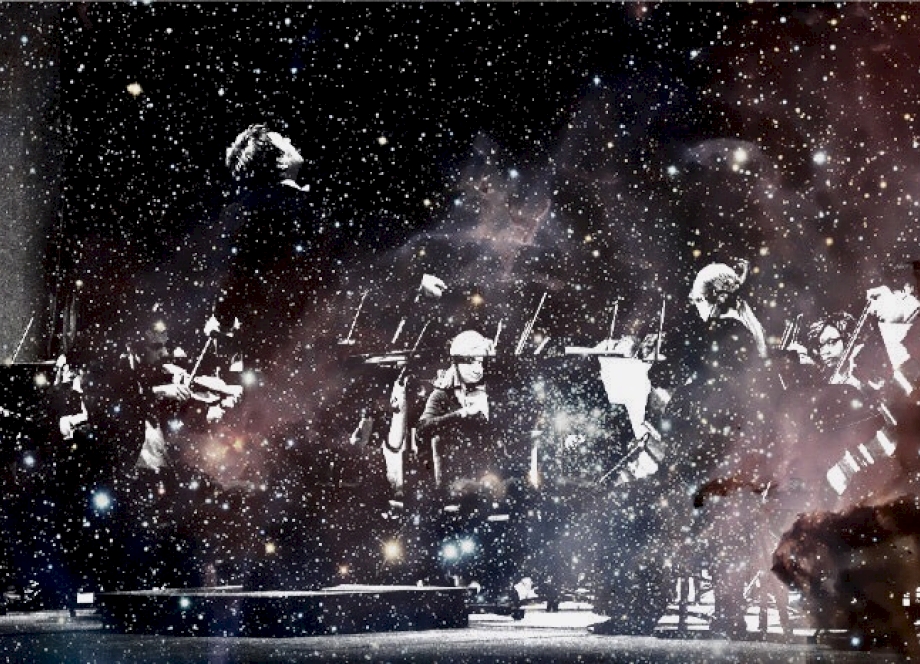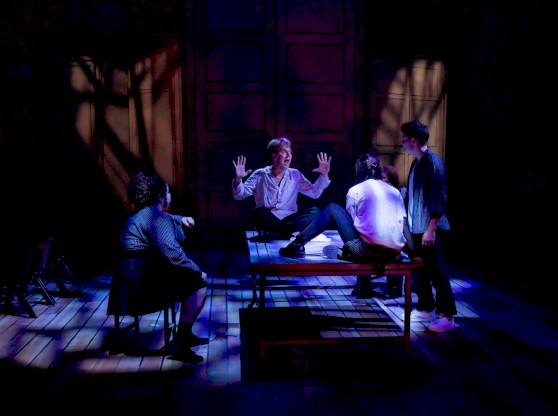In Concert
By Erica Machado
for Dr. Raymond Chobaz
This was the meeting ground, the place for reincarnation. We straightened our
Spines. We forgot our family names. We watched for the sign. Beneath the
mathematics of two hands, we passed each leitmotif from bow to breath as if it were
stained glass, as if it were recently unearthed and precious. We released harmonies
with the complex veins of butterfly wings; they resounded in the vaults, their
vibrations ran deep and for centuries. This, too, was a language for creation. This
was one ancient theory of time.
This spring, Dr. Raymond Chobaz is celebrating his 35th season with the School of Music. Incidentally, this milestone corresponds with his 70th birthday on January 27 — meaning that Chobaz has officially dedicated half of his life to supporting students within the School of Music and the University as a whole.
During that time, the illustrious Chobaz has made huge impacts and contributions to the students, faculty and staff of the College. His steady presence in the UF Symphony Orchestra helped to transform it from a casual troupe comprised of students and community members into a thriving orchestra filled with passionate students from all over campus. Chobaz saw the value in recruiting students and legitimizing the Symphony Orchestra early on, and he has spent decades working with students through the program.
Those who have studied under Chobaz know what a uniquely warm presence he exudes, both in class and on stage. Erica Machado (BA English ’12), a former member of the Symphony Orchestra, was so moved by her experience in Chobaz’s class that she dedicated the above poem to him.
For Machado, what separates Chobaz is not simply his inexhaustible passion, though he certainly possesses that.
“What is special about Raymond is that his passion does not transpose itself into the severe intensity or pretentiousness some unfortunately associate with classical music,” Machado explained.
“Rather, Dr. Chobaz’s love for his work can be heard most clearly in what accompanies every single piece the orchestra rehearses and performs: not another instrument, but the lighthearted laughter of musicians who have the privilege of working with such a dedicated, witty and wonderfully gifted leader.”
Students who work with Chobaz are not the only ones singing his praise. Over the years, Chobaz has collected and kept notes from students, faculty and admirers that express his impact on their lives.
In an article for the Gainesville Sun last October, Kim Tuttle, the Executive/Artistic Director of Dance Alive National Ballet wrote, “To those who have watched Dr. Chobaz conduct, you know how the music dances inside him.”
Stella Sung (MFA ’84), Director of the University of Central Florida’s Center for Research and Education in Arts, Technology and Entertainment (CREATE), a UF Distinguished Alumna and internationally recognized composer who has known Chobaz for many years, recently expressed her gratitude that he is getting the recognition and attention he has long deserved.
“Raymond is a fabulous musician and he has been an amazing faculty member for all these years,” Sung said. “He has always given interesting, creative, unique, and fantastic programs for the orchestra and the students, and has been inclusive with his colleagues, giving many of them opportunities which they might not otherwise have had.”
For his part, Chobaz remains humbled by all the praise, though he does not see himself as any different from other musicians and professors.
“What I’m doing is not a job,” Chobaz said. “It’s a passion!”
What might separate Chobaz, though, is his dedication to ensuring that his students gain a wide and all-encompassing connection with the world around them before they graduate from their studies. Though he teaches music, Chobaz feels that any successful student must branch outside of their field before they can begin to truly understand it.
This belief, which Chobaz has cultivated for many years, was enriched by his encounter with Nobel Prize Winner, Richard R. Ernst, in 2014. Ernst, who received the Nobel Prize in Chemistry for his developments that would eventually lead to the modern M.R.I. machine, shared and confirmed Chobaz’s thoughts.
After the encounter, Chobaz wrote that Ernst would often tell his students, “Do not become one-sided nerds. Never forget your passions! If, in the end, you only understand chemistry, you won’t even understand that!”
It’s a philosophy that Chobaz wholly endorsed.
“That meeting completely confirmed my views on life,” Chobaz said.
“I always teach my students that tunnel vision will never lead to success. All of the great people have always branched out...great inventions or insights come as surprises. You need to have depth and width. You need to be able to see beyond the tip of your own nose.”
That was part of why Machado’s poem was so touching to Chobaz: It displayed the reflectiveness and sensitivity that he hopes all students who leave his classroom develop. For Chobaz, these traits are just as important as anything he can teach a music student on a technical level.
As Chobaz jestingly reflected, “I want my students to say they learned ‘everything’ from me, including music.”




